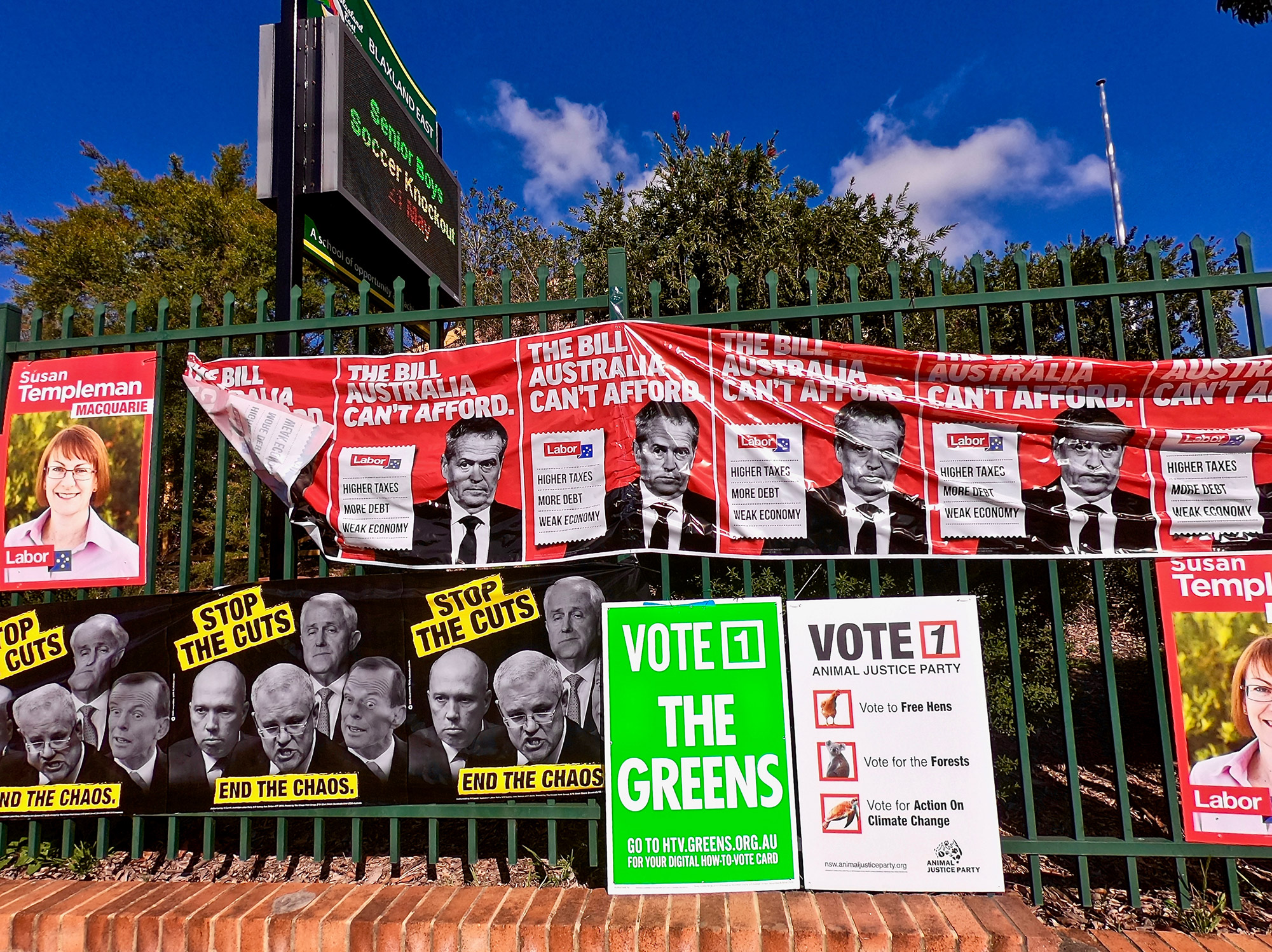
Politics
What does the Australian election mean for the commodities industry?
Australians have voted widely in favour of more concrete climate action. Zachary Skidmore examines what this means for the mining industry.
A
ustralians have widely rejected the leadership of the conservative coalition party in a stunning federal election result. Labor secured 77 seats, while the Liberal coalition party, headed by the highly unpopular Prime Minister Scott Morrison, achieved only 58 seats, 19 less than they earned in 2019.
Central in the public discourse during the campaign were the impacts of climate change and the future of Australia's commodity industry. "Australians are hyper concerned about climate change," political scientist Kate Crowley stated." But the major parties, especially the [ruling] coalition, don't want to talk about climate change. For them, it's done and dusted."
This apathy towards climate change and lack of action on dealing with the adverse impacts of the mining and energy industry proved to seriously dent Morrison's public support. Before the election, a poll discovered that the majority of voters in all 151 of Australia's federal electorates believed that the government should have been doing more to tackle climate change.
This finding bore out even within key coal regions such as Hunter Valley, which opposed the building of new coal and gas plants. With the election of Labor, further questions arise over the future of Australia's mining industry.
Climate apathy
Climate change proponents have roundly lambasted Morrison's outgoing government for offering little action on greenhouse gas reduction. The coalition had been very quiet during the campaign trail on this issue, remaining steadfast to their previously announced emission reduction plan of 26% to 28% by 2030, based on 2005 levels.
A report found that just 4% of tweets from senators and 3% from members of parliament mentioned climate in the first week of the campaign. Most did not tweet about climate change at all.
The commodities sector has heavily influenced this apathy. Mining remains Australia's single largest sector, with figures from the Australian Bureau of Statistics showing that the industry was responsible for more than one-tenth of the economy between 2019 and 2020. Additionally, resources and energy exports reached a staggering $221.2bn (A$321.6bn) in value over the same period.
Figures from the Australian Bureau of Statistics [show] that the industry was responsible for more than one-tenth of the economy between 2019 and 2020.
Australia is also the world's biggest exporter of liquefied natural gas and the second-biggest coal exporter. According to government figures, the two commodities are its second and third-biggest export earners, bringing in an estimated $123.8bn (A$180bn) this financial year.
Political analysts said that the conservative Liberal-National coalition faltered because the prime minister had lost the public's trust defending a government pulled to the right by members who refused to tackle climate change seriously.
This reflected poorly, especially amongst younger voters. A 2021 survey from the Foundations for Tomorrow initiative found that 93% of Australians under 30 think the government is doing too little to tackle climate change.
To mine or not to mine
Despite Labor coming out victorious in the election, doubts remain about what this will mean for Australia's commodities and energy industry.
Due to the intrinsic nature of fossil fuels within the Australian economy, it will be difficult for the Labor Party to phase out heavy fossil fuel use and exportation successfully. The coal industry has become a key income generator for Australia, generating $59.9bn (A$87.04bn) in 2019, up from $26.4bn (A$38.32bn) in 2016.
As a result, a spate of new mines have been announced over recent years to expand production well into this decade. The Labor Party has already pledged to increase the emission reduction target of Australia by 43% by 2030, with the public sector reaching net zero at the same time. However, this remains under the 50% to 75% expert-recommended target, conducive to the 2015 Paris climate commitments.
Labor has pledged to invest heavily into the renewable sector, creating more than 600,000 jobs and detailing strategies for supporting workers' transition from fossil fuels to other industries.
Additionally, as part of its manifesto, Labor has pledged to invest heavily into the renewable sector, creating more than 600,000 jobs and detailing strategies for supporting workers' transition from fossil fuels to other industries.
However, the new Labor government will find it increasingly difficult to accelerate Australia's decarbonisation despite these pledges. They have already made it clear that they will not prevent Australia's large coal and gas export industry from developing more coal mines and gas fields. Despite several commitments by energy producers such as AGL to shut down coal and gas plants earlier than planned, both Labor and the Liberal coalition have remained steadfast in their support of fossil fuels.

// 3D System Model and Completed Installation. Credit: Deimos
Independent pressure
Despite Labor achieving the highest proportion of votes, there was a noticeable shift towards Independent and Green candidates, who campaigned on a platform centred on climate change mitigation.
The Australian Greens secured their best result yet, winng four seats. Adam Bandt, leader of the Green Party, has stated that all new coal and gas developments would be the party's priority in any negotiations with Labor.
"The first job is to stop making the problem worse," sais Bandt. "Labor's targets don't even consider the 114 new coal and gas projects in the pipeline. You can't put out a fire while pouring petrol on it."
// Main image: 3D System Model and Completed Installation. Credit: Deimos
Labor's targets don't even consider the 114 new coal and gas projects in the pipeline. You can't put out a fire while pouring petrol on it.
The independent candidates were also influential in breaking the stranglehold of the Liberal coalition in wealthy urban districts that are traditionally Liberal heartlands. Dubbed "teal", due to their conservative fiscal politics combined with green views on climate, they proved effective in seizing control of formerly rock-solid Liberal seats in Sydney, Melbourne and Perth.
The rise of a new climate-conscious and independent group of MPs indicates disillusionment with the mainstream parties. Suppose Labor is unwilling to take more drastic action on issues such as climate change. In that case, the next election could spell disaster as the Australian electorate continues to shift their opinion on the government's ongoing support of the fossil fuel industry.
// Main image: Political posters. Credit: B-E / via Shutterstock